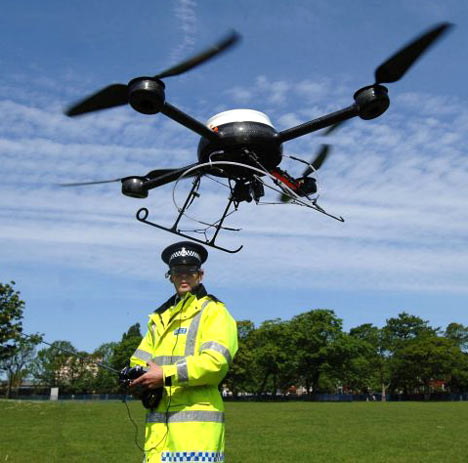
A British commentator on drones has claimed that you own the airspace above your property to the edge of space (and the ground below to the centre of the Earth), so if a drone entered it without permission one could sue for illegal trespass. Is that so?
A British commentator on drones has claimed that you own the airspace above your property to the edge of space (and the ground below to the centre of the Earth), so if a drone entered it without permission one could sue for illegal trespass. Is that so?
The writer is technically correct but he is referring to common law rules that are no longer relevant/applied, a CLA lawyer believes.
The basic rule, he says, is that you have the right to the accessible/useful space over your property. but anything very high up is not within that scope – so you couldn’t sue. So, if you had a drone that hovered in the air outside the 3rd story balcony of a house, then – because that airspace is being used – you could probably claim they were tresspassing. However, if you lived in a one-story house and a drone was flying 300m about it then, because you’re not exercising any control over that space, you probably couldn’t sue.
The original latin maxim was cuius est solum, eius est usque ad caelum et ad inferos ("For whoever owns the soil, it is theirs up to Heaven and down to Hell.").
Here is some history on the common law position in the UK (it is the same in Australia probably).
In Lord Bernstein of Leigh v Skyviews & General Ltd [1978] QB 479, the Court noted that the phrase was ‘colourful’, but said that it was well settled in the common law that a land owner had rights in the air immediately above the land, extending in particular to signs overhanging from adjacent properties. The right did not extend though to more than was ‘necessary for the ordinary use and enjoyment of the land and structures upon it’. Planes, hot air balloons, and the like, would not commit a tort of trespass by merely passing over a person’s property.
In Star Energy Weald Basin Limited and another v Bocardo SA [2010] UKSC 35, the UK Supreme Court (having heard argument that the principle was no longer relevant to land ownership) held that the principle "… still has value in English law as encapsulating, in simple language, a proposition of law which has commanded general acceptance. It is an imperfect guide, as it has ceased to apply to the use of airspace above a height which may interfere with the ordinary user of land [cf Bernstein, above]…" and that "… the owner of the surface is the owner of the strata beneath it, including the minerals that are to be found there, unless there has been an alienation of them by a conveyance, at common law or by statute to someone else".

